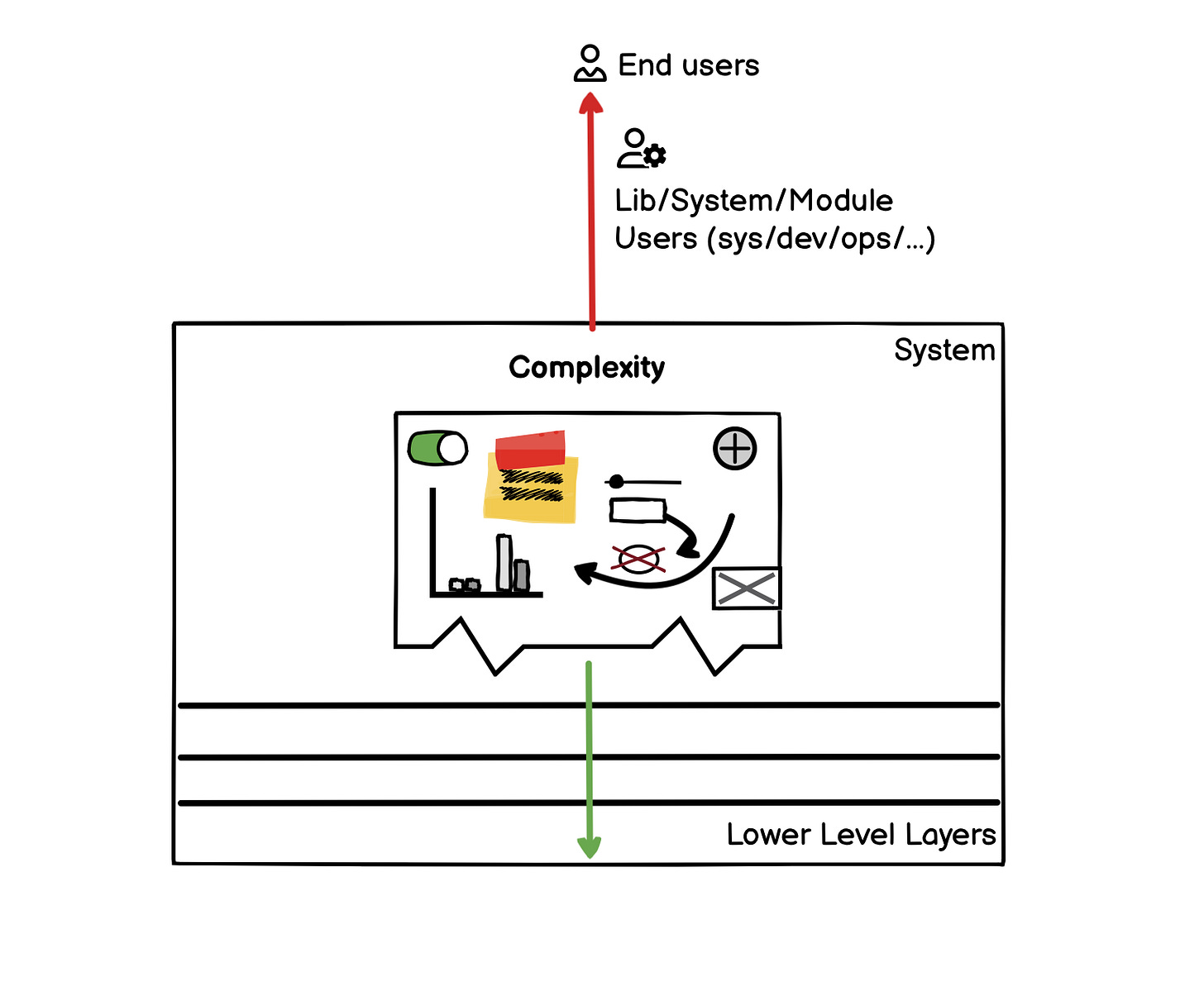Death by configuration parameters - Where to place complexity?
"A Philosophy of Software Design" pt.3
In the second chapter of this series (Must classes be small?) we explored how deeper modules provide a significantly better interface, concealing complexity and enhancing clarity and readability. However, this improvement does not come without a cost. It demands better design and more thoughtful choices.
A crucial factor in this process is complexity management, and we understand that it is not always feasible to eliminate it entirely. Sometimes, it is inherent in the domain we operate in, or it arises from real-world scenarios. Additionally, in many 'fast-paced' work environments, those who contribute (directly or indirectly) to the design of a system are often rewarded for short-term choices rather than for long-term sustainability.
Unavoidable complexity
Eliminating any other source of avoidable (although with some associated cost and trade-off) complexity, let's assume you find yourself confronted with an inherently complex scenario, and you are tasked with deciding how to address it. A common situation arises when developing a library or module responsible for sending requests over the network. Due to its intrinsic nature, instability may occur, necessitating the implementation of a retry logic.
In poorly written software, this is often managed by either incorporating the logic into the module but exposing certain non-optional configuration parameters (such as timeout seconds, the number of retries, backoff strategy...) to handle it, or in the worst-case scenario, it is entirely delegated to the module's users.
As we mentioned, the primary objective is to consistently simplify the experience for users (i.e., other developers, end-users, sysadmins) when constructing modules. When developing, the focus is on maintaining a straightforward interface for common scenarios, ensuring that users can solve their problems without delving into intricate technical details. While it may be tempting for module developers to address easy issues and pass on the tougher ones — perhaps by throwing exceptions, introducing numerous configuration parameters, or overloading the API to shift responsibility of the software's runtime behavior — the core principle remains centered on user-friendly functionality.
What is important to understand is that the short-term approach is even detrimental for us since changing our interface (through exceptions or function/API/config parameters) ties our hands if we want to improve things in the future, forcing us to introduce breaking changes that we could have avoided. This is an additional cost, as we often need to support many versions simultaneously. This cost was hidden at the time of our poor decision, and now it’s coming back to hit us in the face.
Pulling complexity up or down?
With all of this in mind, it is pretty clear that it is often better to pull complexity downward, but it should always be framed in the wider realm of minimizing the overall system complexity. As Ousterhout points out in the book, pulling complexity down is most valuable when:
The complexity being pulled down is closely related to the class’ existing functionality (e.g. retry-timeout loops in a client hiding API calls).
Pulling the complexity down will result in simplifications elsewhere in the application (the retry-loop is handled in a single place and reused everywhere in the module).
Pulling the complexity down simplifies the class’ interface (for the most cases, if not all, there’s no need to expose our users to the network instability management details).
Reasonable defaults
In conclusion, if there is something to take with you, it’s the question: "Will your users (or any upper-level module) be able to determine a better value than we can determine here?" Often the answer is no, and providing reasonable defaults or, better yet, a self-discovering mechanism to set these parameters (think about TCP congestion control) is the way to go to keep things simple (for them) at our cost for sure, but for long-term sustainability.

